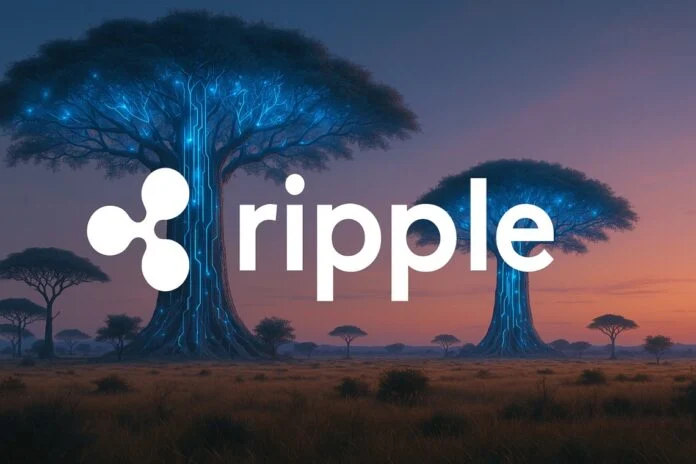Ripple has formed a strategic partnership with Chipper Cash to strengthen cross-border payments in Africa.
The objective is clear: to leverage blockchain technology to reduce remittance costs and improve financial integration on the continent.
With over 5 million users in nine African countries, Chipper Cash will begin using Ripple Payments, an integrated crypto payments platform, active 24 hours a day and 365 days a year.

Summary
Ripple and the management of cross-border payments in Africa
The project is part of a perspective of sustainable and inclusive digital development, reducing the economic isolation of entire communities.
This collaboration, announced Thursday by Ripple, represents a fundamental step in the expansion of blockchain services in Africa, a region where remittances constitute a crucial component of the economy.
According to the World Bank, the average costs of a transaction in Africa exceed 7%, among the highest in the world. A percentage that strongly affects the money flows sent by migrants to their countries of origin, often intended to cover essential expenses.
Ripple and Chipper Cash: the blockchain for the unbanked
Through Ripple Payments, Chipper Cash aims to streamline international money transfers, offering a faster, safer, and more cost-effective solution compared to traditional methods.
This system, supported by blockchain technology, allows not only to accelerate operations but also to increase their transparency and traceability, central elements to inspire trust in digital financial services.
Reece Merrick, Managing Director di Ripple per Medio Oriente e Africa, emphasized the importance of the new synergy:
“Our partnership with Chipper Cash represents a significant milestone in Ripple’s African expansion. The adoption of blockchain is growing across the continent, and we are excited to offer our crypto payment solution to partners in the region.”
The initiative is part of a broader strategy already launched in 2023, when Ripple had collaborated with Onafriq, previously known as MFS Africa. Both projects share the goal of stimulating economic growth through efficient and accessible financial channels.
Ham Serunjogi, co-founder and CEO of Chipper Cash, highlighted how payments enabled by cryptocurrency can represent an opportunity to strengthen financial inclusion: “We are happy to integrate Ripple’s global network to leverage the transformative potential of blockchain and allow consumers to receive payments more quickly and cost-effectively.”
Ripple Payments covers over 90 payment markets and handles more than 70 billion dollars in annual volumes. It also has regulatory licenses and registrations in numerous countries, thus offering a compliant and secure digital infrastructure capable of supporting the tokenization, custody, exchange, and transfer of digital assets on behalf of financial institutions.
However, the move in Africa comes shortly after another significant event for the company: Ripple has recently reached an agreement with the SEC of the United States, agreeing to pay a reduced penalty of 50 million dollars and withdrawing its appeal in the long legal dispute related to the sale of the XRP token.
The SEC, in return, requested the removal of the injunction that prevented Ripple from selling XRP to institutional investors.
This recent legal development highlights the growing importance of regulatory clarity in the cryptocurrency sector, especially at a time when blockchain and digital finance are gaining a primary role in global economic inclusion strategies.
The new agreement between Ripple and Chipper Cash also has potential repercussions for regulation and the financial industry in Africa. In particular, it could push regulators to review old regulatory models to foster a competitive environment that encourages financial innovations based on digital technologies.
The introduction of more agile and transparent infrastructures could thus facilitate access to global markets, improve liquidity for micro and small enterprises, and strengthen the economic resilience of local communities.

Conclusion
Africa, with a rapidly growing population and increasingly widespread digital adoption, represents fertile ground for fintech solutions. In this context, the Ripple-Chipper Cash agreement could not only reduce remittance costs but also act as a catalyst for sustainable development and the creation of economic opportunities.
Even those who have so far been excluded from traditional banking services might finally access payment tools on a global scale.
In summary, the partnership between Ripple and Chipper Cash highlights the potential of blockchain in redefining African financial systems: no longer just a technology to reduce costs, but an engine to connect economic, digital, and human trajectories.
